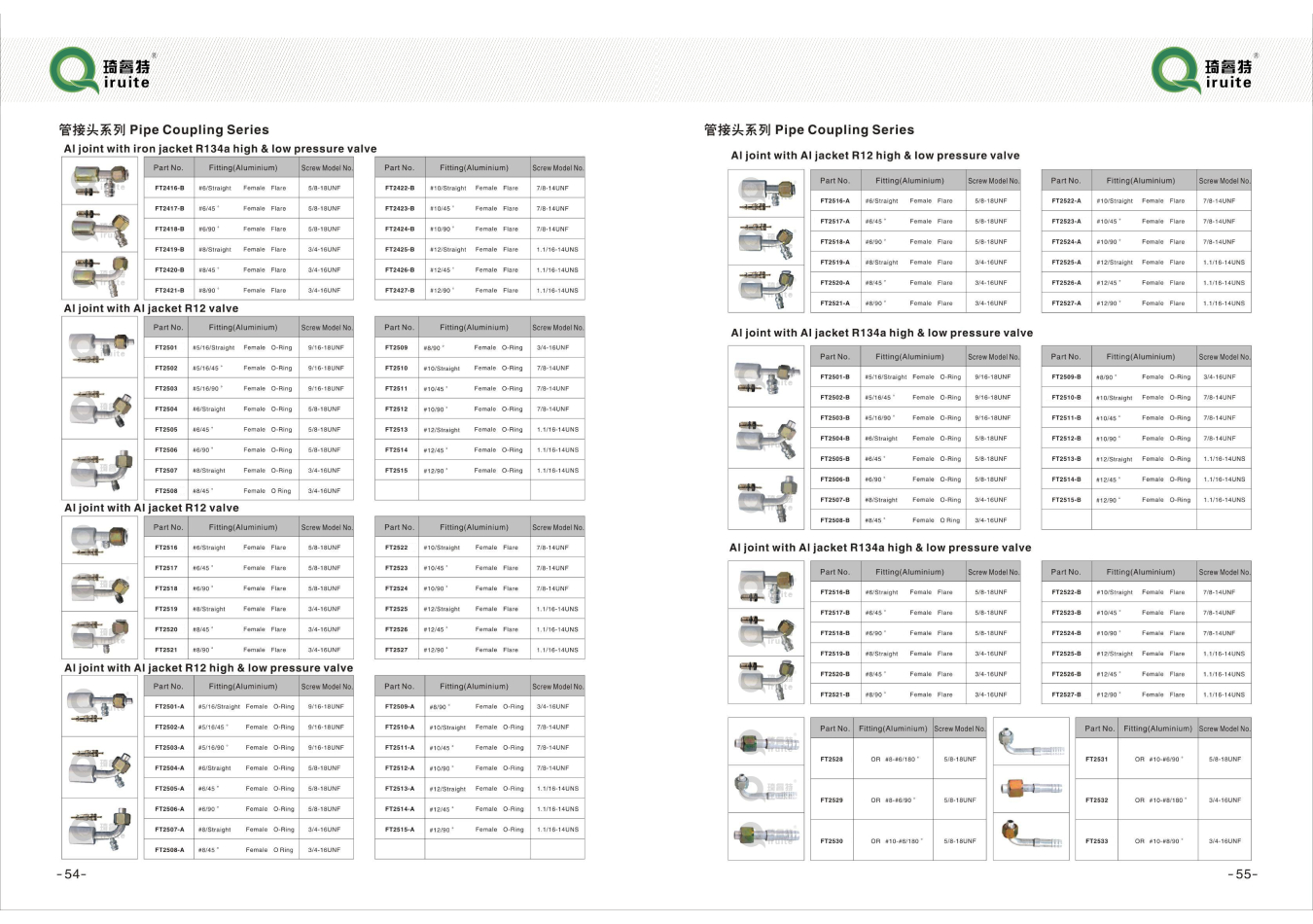Choosing the Right Hoses for Your Car Air Conditioning System
Understanding Car Air Conditioning Hoses Importance, Types, and Maintenance
The car air conditioning (AC) system is crucial for maintaining comfort, especially during hot summer months or in humid climates. One of the lesser-discussed components of the AC system is the hoses. Car air conditioning hoses are responsible for transporting refrigerant and fluid throughout the system, facilitating the cooling process. This article delves into the importance of these hoses, the different types available, and how to maintain them for optimal performance.
Importance of Car Air Conditioning Hoses
Car air conditioning hoses play a vital role in the overall functionality of the AC system. These hoses are designed to withstand high-pressure conditions while carrying refrigerant at varying temperatures. They ensure that the refrigerant flows efficiently between the compressor, condenser, evaporator, and the expansion valve. Without properly functioning hoses, the cooling process can become compromised, leading to inadequate cooling or even complete system failure.
Moreover, the hoses also help to prevent refrigerant leaks, which can be detrimental not only to the performance of the AC system but also to the environment. A leak in the AC system can lead to lost efficiency, increased energy consumption, and environmental harm due to refrigerant escaping into the atmosphere.
Types of Car Air Conditioning Hoses
Car air conditioning hoses come in various types, each serving a specific purpose in the AC system
. The two primary types are1. High-Pressure Hoses These hoses transport refrigerant from the compressor to the condenser. They must be able to withstand high pressure generated within the system during operation. Typically made of durable materials, such as reinforced rubber or metal, high-pressure hoses are designed to resist wear, heat, and chemicals.
2. Low-Pressure Hoses These hoses carry refrigerant from the evaporator back to the compressor. The pressure in these hoses is significantly lower, but they still need to be robust enough to handle refrigerant flow and environmental factors. Low-pressure hoses are generally made from flexible rubber materials that are less thick than high-pressure hoses.
In addition to these main types, some vehicles might include suction hoses and discharge hoses, which serve similar functions but may be tailored for specific design needs in various vehicle models.
car aircon hoses

Maintenance of Car Air Conditioning Hoses
To ensure that your car's air conditioning system performs efficiently, regular maintenance of the hoses is essential. Here are some tips on how to maintain them
1. Regular Inspections Periodically check the hoses for visible signs of wear and tear, such as cracks, fraying, or bulging. Inspect the connection points to ensure there are no leaks. Early detection of hose damage can prevent more significant problems down the road.
2. Replace When Necessary If you notice any signs of damage or wear, it is crucial to replace the hoses promptly. Driving with compromised hoses can lead to refrigerant loss and a subsequent rise in temperature inside the vehicle.
3. Keep the System Clean Ensure that the AC system is regularly serviced. A clean system minimizes the risk of corrosion and buildup that can impact hose integrity. Routine maintenance by a qualified mechanic can help in preserving the longevity of the hoses and the entire AC system.
4. Use Quality Parts When replacing hoses, always opt for high-quality parts that meet or exceed OEM specifications. Using inferior parts can lead to premature wear and potential failure of the AC system.
5. Be Mindful of Environmental Factors Extreme temperatures and exposure to harsh chemicals can affect the longevity of the hoses. Parking in shaded areas or using protective covers can help reduce the impact of these factors.
Conclusion
In conclusion, car air conditioning hoses may often be overlooked, but they play a vital role in ensuring the efficient operation of your vehicle's AC system. Understanding their importance, recognizing the different types, and maintaining them properly can significantly impact your car's comfort and efficiency. Regular inspections and prompt replacements when needed pave the way for a reliable and effective air conditioning system, allowing you to enjoy a pleasant driving experience regardless of the weather outside.
-
Ultimate Spiral Protection for Hoses & CablesNewsJun.26,2025
-
The Ultimate Quick-Connect Solutions for Every NeedNewsJun.26,2025
-
SAE J1401 Brake Hose: Reliable Choice for Safe BrakingNewsJun.26,2025
-
Reliable J2064 A/C Hoses for Real-World Cooling NeedsNewsJun.26,2025
-
Heavy-Duty Sewer Jetting Hoses Built to LastNewsJun.26,2025
-
Fix Power Steering Tube Leaks Fast – Durable & Affordable SolutionNewsJun.26,2025

